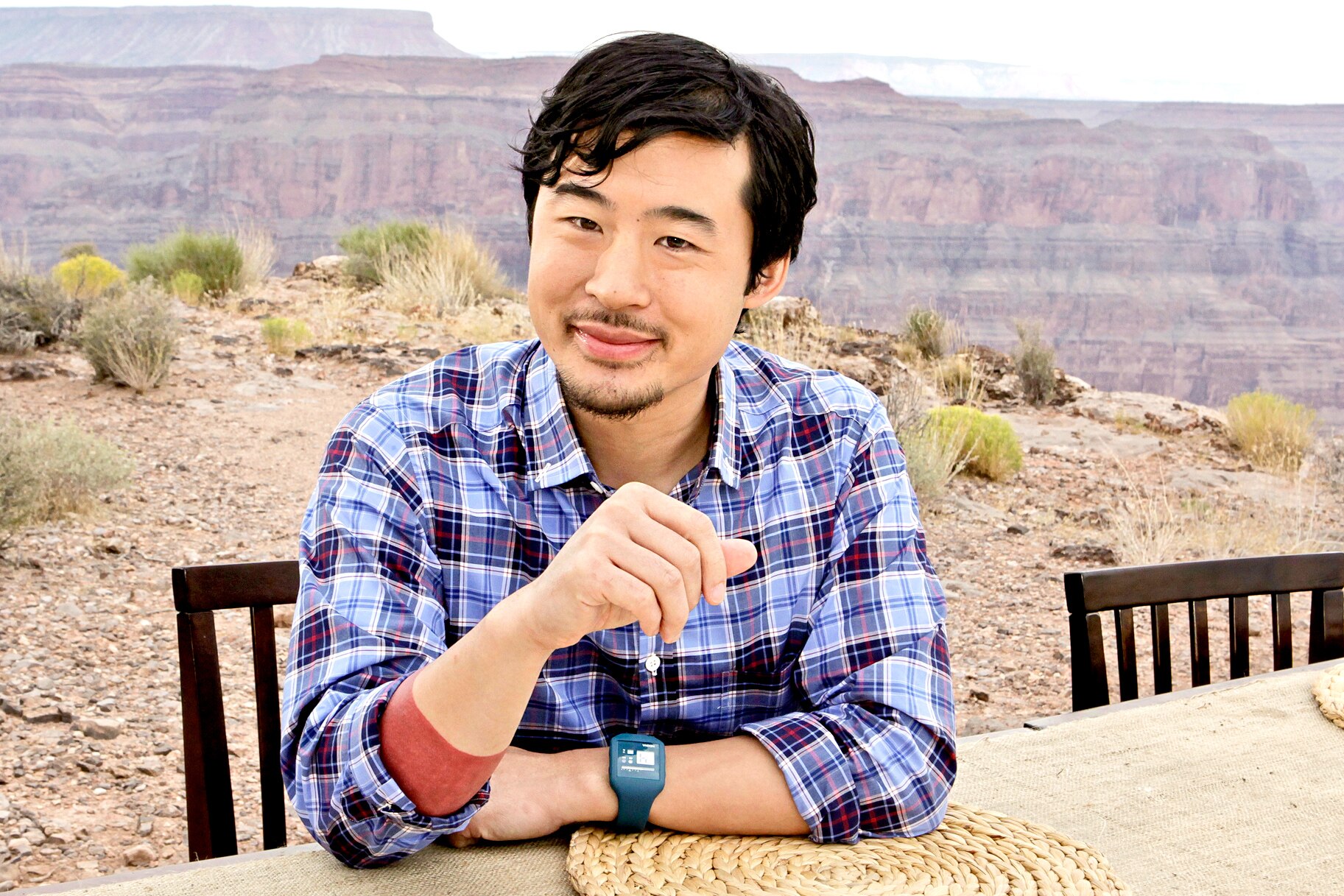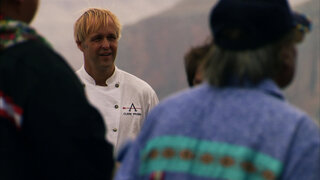Sacred Territory
Francis Lam describes an emotional meal with the Hualapai tribe.

“So, can the chefs really cook?” That’s the question I’ve been asked the most, which isn’t surprising. Everyone likes to take a peek behind the curtain, I think, and people want to know if they’re being duped by the fantasy world of television.

Well, I’ll be honest. As a cook who’s felt the psyche-crumbling pressure of a ticket rail filling up with orders and a pan taking too long to heat up, I wasn’t just impressed with these chefs—I was blown away by their ability to complete, let alone rock out, the challenges. And this episode is a great example of that: the chefs had to make dishes on the fly, trying to impress people welcoming them to the edge of the Grand Canyon, with ingredients some of them have never seen before, while watching their grills—their only source of heat—fill up with rain water. In the desert. How do you not feel like the gods are laughing at you when that happens?
I mean, how they didn’t stop, drop, and roll up in the fetal position is kind of beyond me. To make delicious food under that kind of stress is damn near superhuman.
But that wasn’t even the best part of the adventure.
My favorite part of the episode was when Charlie, one of the Hualapai tribe members, dropped a little reality on us: “We lived by the chase, we hunted these animals. And once we acquired them, it wasn’t a situation where we were saying, ‘Ah, this rabbit, the seasoning is exquisite.’ ”(To which Ruth said, “You’ll be making fun of us for years to come.”)
We laughed—I mean, it is a little silly to be all, “The butter is weeping out of this sauce!” when you’re lucky enough to be eating where we were. But it was also a powerful reminder of what the day was really supposed to be about, what it’s about for the people we were with: Trying to hold on to their traditions in a world where it’s easy for them—and their children—to forget them.
At one point, one of the elder women nearly cried at the taste of the venison, saying that it had been years since she tasted deer meat, a flavor she remembered, immediately, from her childhood. I know I had nothing to do with it, but it was magic to be there when that happened. Chefs and critics often look at food through the lens of creativity, culture, discipline and execution. But it’s important to be reminded how much food is about the obvious fact of life, of being alive, and connecting yourself to the lives that were lived before.



